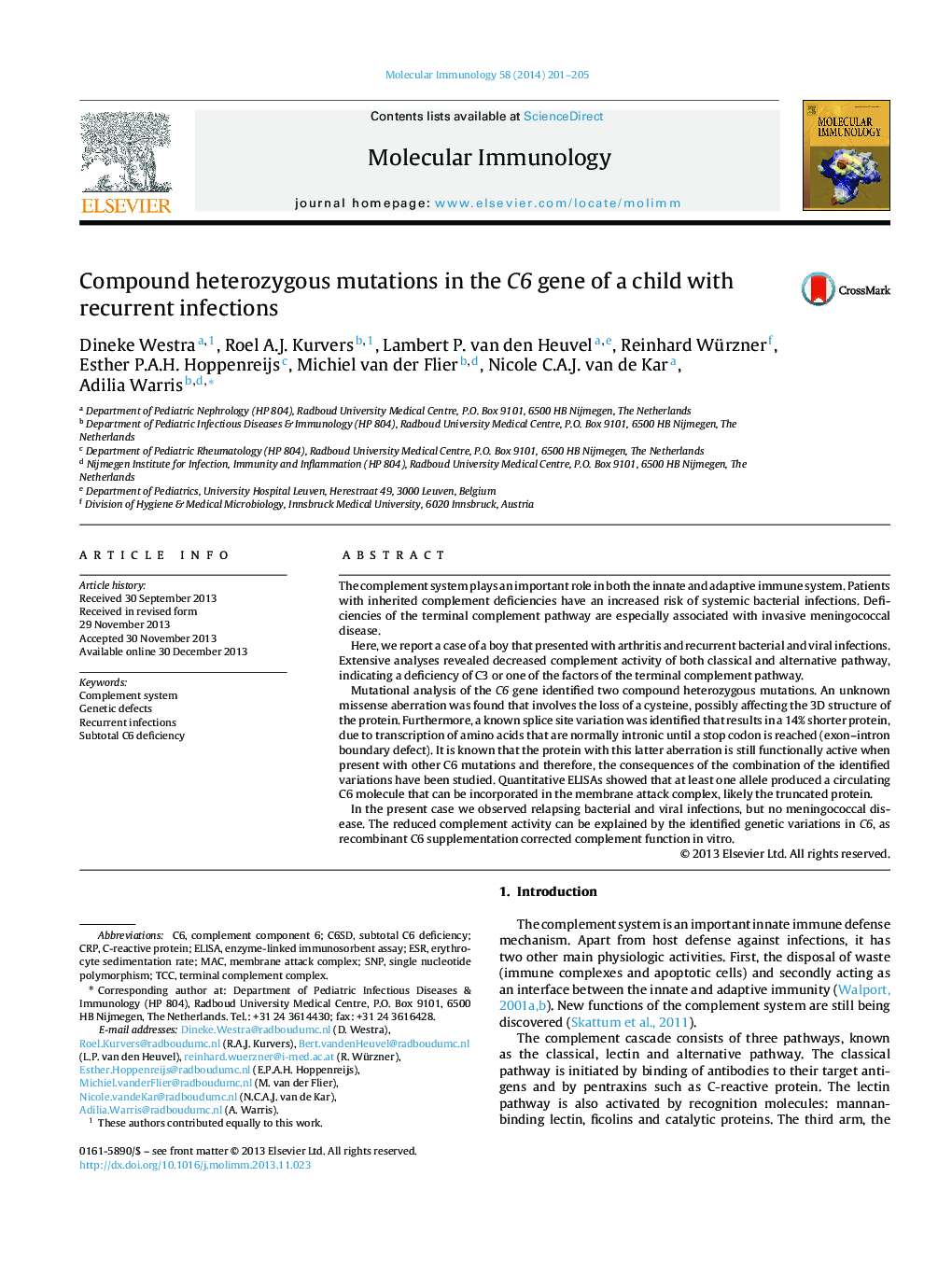| Article ID | Journal | Published Year | Pages | File Type |
|---|---|---|---|---|
| 2830920 | Molecular Immunology | 2014 | 5 Pages |
•Two compound heterozygous mutations in the C6 gene result in recurrent infections, but no invasive meningococcal disease.•A 14% shorter C6 protein is functionally active and can be incorporated in the MAC when present with other C6 mutations.•C6 might play a more prominent role in the innate immune responses, as reflected by the recurrent infections in our patient.•TCC deficiencies might be more common than currently thought, even without a history of invasive meningococcal disease.
The complement system plays an important role in both the innate and adaptive immune system. Patients with inherited complement deficiencies have an increased risk of systemic bacterial infections. Deficiencies of the terminal complement pathway are especially associated with invasive meningococcal disease.Here, we report a case of a boy that presented with arthritis and recurrent bacterial and viral infections. Extensive analyses revealed decreased complement activity of both classical and alternative pathway, indicating a deficiency of C3 or one of the factors of the terminal complement pathway.Mutational analysis of the C6 gene identified two compound heterozygous mutations. An unknown missense aberration was found that involves the loss of a cysteine, possibly affecting the 3D structure of the protein. Furthermore, a known splice site variation was identified that results in a 14% shorter protein, due to transcription of amino acids that are normally intronic until a stop codon is reached (exon–intron boundary defect). It is known that the protein with this latter aberration is still functionally active when present with other C6 mutations and therefore, the consequences of the combination of the identified variations have been studied. Quantitative ELISAs showed that at least one allele produced a circulating C6 molecule that can be incorporated in the membrane attack complex, likely the truncated protein.In the present case we observed relapsing bacterial and viral infections, but no meningococcal disease. The reduced complement activity can be explained by the identified genetic variations in C6, as recombinant C6 supplementation corrected complement function in vitro.
